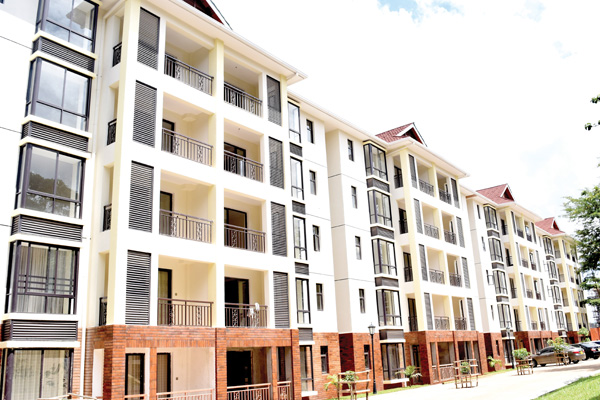In Nigeria, though owning a decent home is necessary, it is a very expensive venture to own one because it costs an average of N5 – N8 million to own a 2-bedroom apartment while a 3-bedroom bungalow may require upwards of N10 million to build.
For majority of Nigerian workers, raising such finance is tough. At least, not from salaries as the case of federal civil servants shows. The average salary for a level 4 staff of a federal ministry is slightly above N20, 000 less tax deductions while that of someone who is on level 14 is just around N100,000 monthly.
It was because of this poor wage structure of civil servants, the need to help Nigerian workers own their homes as well as the strategic importance of housing to overall national development that the the National Housing Fund (NHF) Scheme was established in 1992.
As laudable and good intentioned as the scheme is, it is yet to live up to home seekers expectations, hence the call for strengthening it . More than ever before, a stronger NHF is needed because of its potential to drive and bolster FMBN’s on-going Affordable Housing Delivery Programme.
Mortgage sector analysts note, however, that 27 years after its establishment, NHF scheme has rec orded some strides, especially with making decent and affordable homeownership possible for tens of thousands of Nigerian workers in most states of the country.
Terungwa Isaac, an Abuja-based housing policy analyst, says recent statistics from the FMBN, which manages the scheme, show interesting milestones, including the provision of housing loans to 48,454 beneficiaries totaling over N228 billion, financing construction of 27,721 housing units at cost of over N102.6 billion.
“It is noteworthy that the scheme could have achieved a lot more if it was financially empowered,” Isaac said.
As a scheme that was designed to pool long-term funds for tackling the housing affordability challenge, the framers of the NHF law understood the importance of ensuring sustainable flow of funds and defined clear sources of finance to drive its operations on scale.
This included 2.5 percent monthly contributions from salaries of workers, investment of 10 percent of loans and advances portfolio of commercial and merchant banks, commitment of 40 percent and 20 percent of life and non-life funds of insurance companies.
Expectation is that these contributions in addition to the federal government’s periodic injections of funds through direct interventions will strengthen the scheme for its statutory function.
Isaac lamented, however, that only the 2.5 percent contribution from workers’monthly salaries has been the mainstay of the scheme, pointing out that commercial and merchant banks as well as insurance companies have failed to comply with the provisions of the law. Injection of funds from the federal government has also been insignificant.
This widespread non-compliance has denied the scheme, and the FMBN of liquidity to scale its affordable housing delivery programs.
“Investments from the financial institutions would have added over N500 billion to the scheme and empowered the FMBN to leverage trillions in long-term finance from the private sector, international development finance institutions and create far more mortgage loans for Nigerian workers,” Isaac said.
Despite these setbacks, the NHF has had profound impact on the Nigerian housing market. Long before the creation of the Nigeria Mortgage Refinance Company (NMRC), a secondary mortgage market, the NHF had been the leading provider of long-term, low-cost affordable housing finance for the country’s mortgage banks and developers.
The FMBN, has over the decades, deployed the funds from the NHF to boost liquidity in the mortgage industry and finance the construction of affordable housing stock. Mortgage loans that it lends through primary mortgage banks (PMBs) attract best market interest rates as low as 6 percent with tenors of up to 30 years.
For these reasons and more, Isaac says, it is important for stakeholders to rally round and support efforts to revise the NHF bill that is under consideration at the National Assembly. This is because, without cheap funds, it will be impossible to give housing loans at single digits for long period of time.
Source: businessdayng




